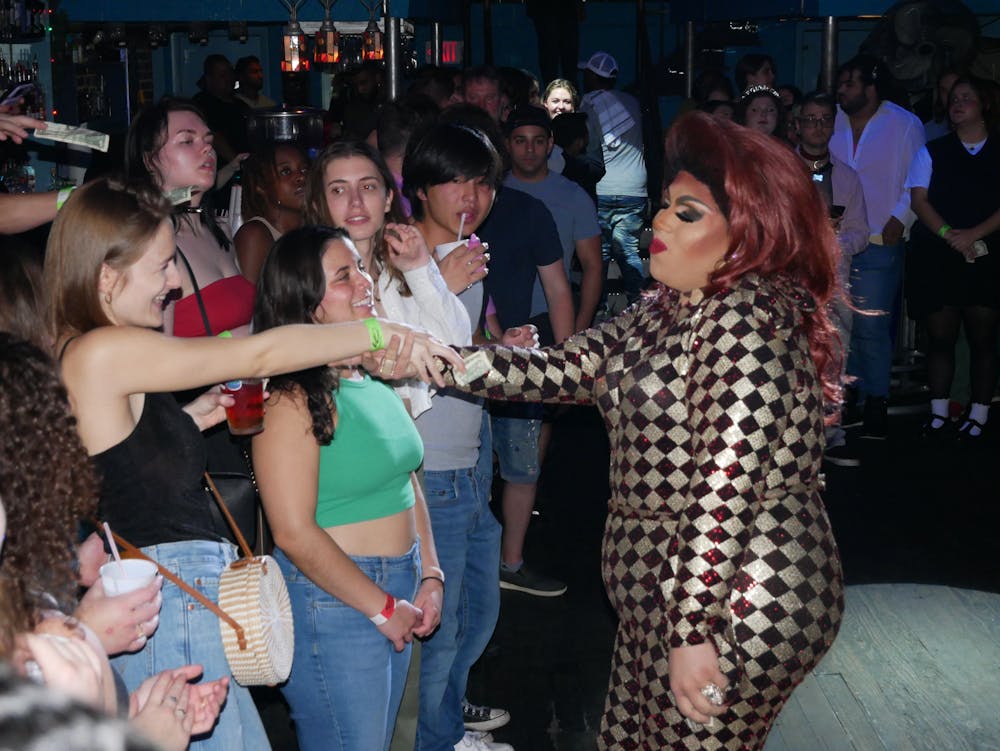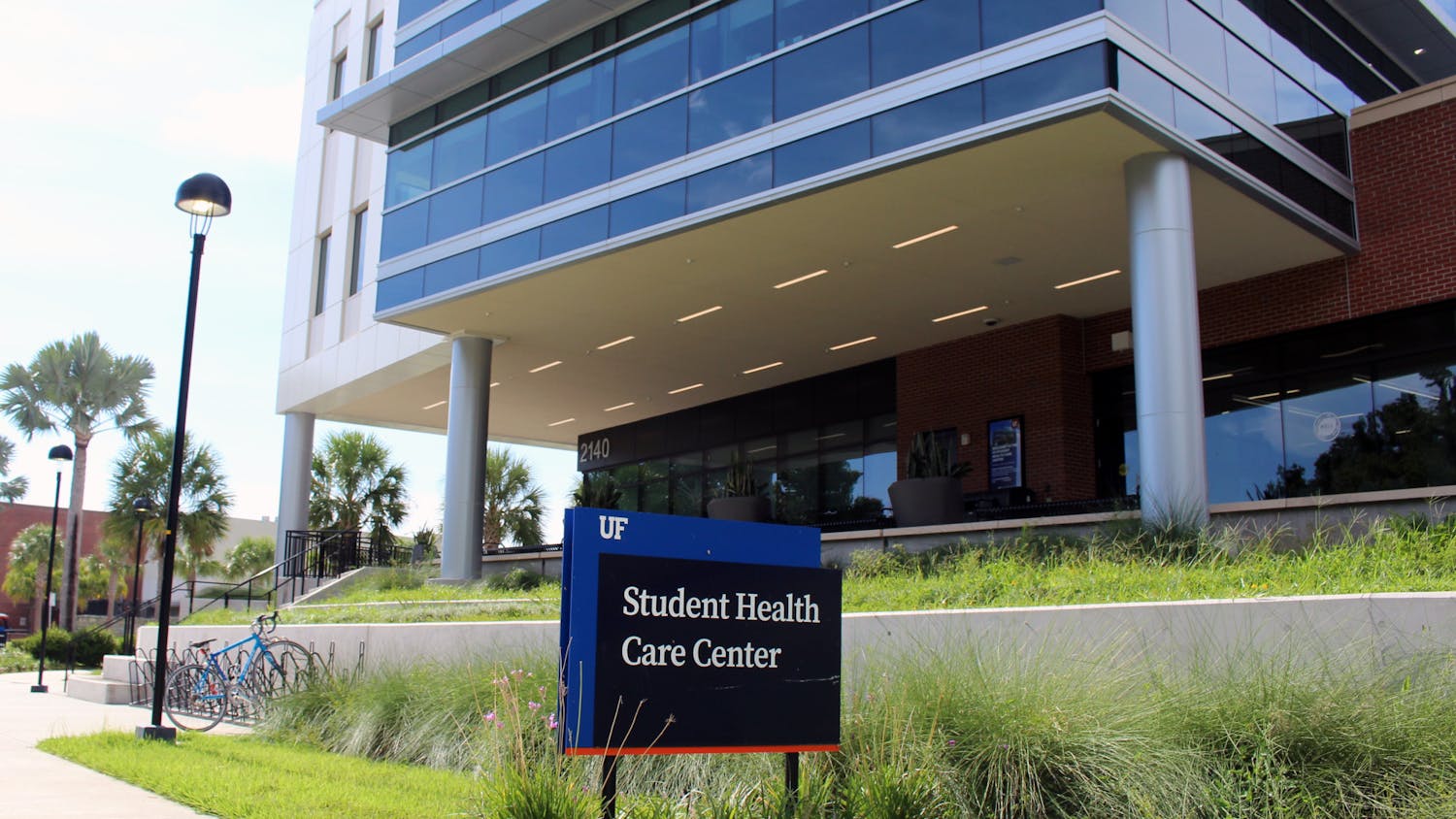Ethan Garrepy began doing drag with a $10 Target face paint palette, an old Halloween wig and a lot of time on their hands during the COVID-19 quarantine. Three years later, the 19-year-old UF musical theater sophomore is one of many artists and performers who make up Gainesville’s flourishing drag scene.
On Nov. 16, the United States Supreme Court refused the state of Florida’s request to re-enact a law punishing businesses for allowing children into drag shows. Artists like Garrepy are taking the opportunity to celebrate the rare legal victory, which follows a flurry of Florida anti-LGBTQ laws passed over recent legislative terms.
Under the Protection of Children Act, filed in the Florida Senate March 2 and signed into law by Gov. Ron DeSantis May 17, the state could fine, suspend or revoke the license from any business that admits a child to an “adult live performance.”
Although the bill does not mention drag shows explicitly, its definition of an adult live performance as including “the lewd exposure of prosthetic or imitation genitals or breasts” has levied criticism for targeting drag performance.
The bill’s House sponsor, Rep. Randy Fine, R-33, announced the bill would “protect our children by ending the gateway propaganda to this evil — ‘Drag Queen Story Time’” in a Facebook post in March.
Florida restaurant successfully sues state
Hamburger Mary’s, an Orlando restaurant that has hosted family-friendly drag events since 2008, filed a suit against the state of Florida, DeSantis and Secretary of State Melanie Griffin over the law one week after it went into effect. The law is unconstitutional under the First Amendment and portrays drag as a public nuisance rather than an age-old art form, the restaurant claimed.
U.S. District Judge Gregory Presnell sided with Hamburger Mary’s June 26 in a ruling that blocked Griffin from enforcing the act.
Florida already has obscenity laws giving it the power to protect children from indecent shows, making the Protection of Children Act unnecessary as well as expression-stifling, Presnell wrote. Florida appealed the District Court’s judgment to the Eleventh Circuit, where it remains pending.
The state of Florida also appealed to the Supreme Court to keep the law on the books during the appeal process. The Supreme Court denied this request in a brief ruling that emphasized its decision had nothing to do with whether the law itself was unconstitutional.
The Supreme Court voted 6-3 against the state, with dissenting opinions from Justices Clarence Thomas, Samuel Alito and Neil Gorsuch.
Gainesville drag artists celebrate victory with caution
For Garrepy, the ability to attend and perform drag shows isn’t just a freedom of speech — it’s a freedom of protest. To be out, proud and performing in the U.S. has long been considered an act of rebellion by those in the queer community, they said.
Aside from showing off their own drag looks on social media, Garrepy often attends shows at Gainesville’s pre-eminent queer nightclub, The University Club. Gainesville’s vibrant queer nightlife, including UC performances and even weekly drag shows at the new Libby’s Grog and Grill, makes it a uniquely safe environment for queer artists, said Garrepy, an Orlando native.
“I was told a lot of things coming here [for college] like, ‘Oh, Gainesville is completely empty, Gainesville doesn’t have anything going on,’” they said. “The people that were telling me that were like, straight jocks … but I’ve been able to find an awesome queer community here.”
Garrepy feels cautiously optimistic following the Supreme Court ruling, they said. But people are stubborn about the issue on both sides, and it’s hard to know what will happen next, they added.
“Republican politicians are completely wanting to shut out drag as an art form, not only just in Florida but across the U.S.,” they said. “And queer people, queer activists are fighting every day to make sure that we have a spot at the table.”
Christina Guiriba, the 37-year-old founder of the first-ever sleepaway summer camp for transgender and nonbinary kids, has seen the worrying effect of recent legislation on LGBTQ+ youth, she said.
“I absolutely hate that they’re having to hear that they shouldn’t exist,” she said.
Guiriba lives in Jacksonville but performs every Thursday at the UC under her drag stage persona Faith Taylor. She also worked as a cast member at Hamburger Mary’s for 10 years and remembers seeing many young people at her shows, she said.
“I know the joy that it brings them to see just another LGBTQ person that identifies on some level with who they are,” she said. “They get so cheery and so excited and bright when they come to the shows, and I hate that they're robbed of that.”
As a transgender woman, beginning to perform in drag as Faith was how Guiriba realized part of her was missing as a young person, she said. The law could prevent young people from recognizing drag as a potential creative outlet like she did, she said.
Guiriba is glad Florida judges are seeing the law as the violation of rights that it is and views any victory — temporary or not — as a step in the right direction, she said. She’s hopeful courts will continue to see the law’s defects, she said.
Legal experts doubtful about the law’s future
Any law targeting a specific type of speech the government dislikes is subject to the highest level of constitutional scrutiny, said Lyrissa Lidsky, UF Raymond & Miriam Ehrlich chair in U.S. constitutional law.
“Just from my own perspective as a First Amendment lawyer, this law is pretty clearly unconstitutional,” Lidsky said.
By driving certain content out of the marketplace of ideas, the law could scare businesses from performing drag at all for fear of criminal liability or — in the case of restaurants — losing their liquor licenses, she said.
The definition of the banned “adult live performance” is vague, so businesses won’t know whether or not their performances violate the rules. But if the government tries targeting certain ideologies more explicitly, First Amendment challenges will pop up in retaliation, Lidsky said.
“One of the best arguments about these laws came from Dolly Parton,” Lidsky said. “Her argument was, under a lot of these drag ban laws, her performance would be banned.”
The preliminary injunction against the law could send it back up the appeals ladder, during which more evidence could come out at trial and more appeals could occur, she said. But the more reasonable step for Florida would be to go back to the drawing board rather than litigating a poorly drafted law, she said.
The law is still in Florida’s Eleventh Circuit U.S. Court of Appeals. The state of Florida filed its brief Nov. 24 and its appendix Dec. 1. The appeal is still awaiting its final verdict.
Contact Zoey Thomas at zthomas@alligator.org. Follow her on Twitter @zoeythomas39.

Zoey is the Fall 2025 engagement managing editor of The Alligator. She has previously served as data editor and reported on the university, metro and enterprise desks. Over the summer, she interned for the Orlando Sentinel. Zoey inherited her mom's love of strong coffee and her dad's love of "Buffy the Vampire Slayer."






